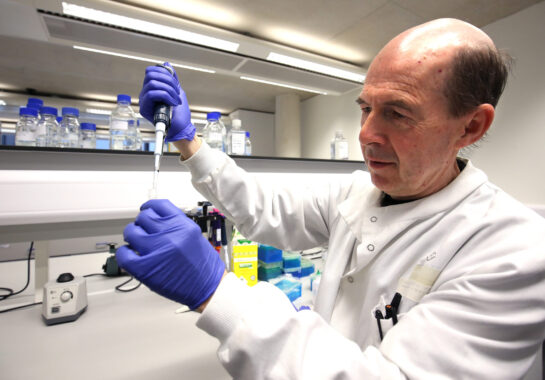An innovative 15-minute blood test, which can fast-track the diagnosis of children with potentially life-threatening conditions, is being trialled by Alder Hey and other hospitals in the NHS this winter.
The hi-tech blood test can distinguish between bacterial or viral infections much more quickly than traditional tests, so serious diseases like sepsis or meningitis can be picked up sooner.
NHS England has funded a trial of the technology in three hospitals, with doctors saying it could make a “vital difference” to the care of children.
If a child arrives at hospital with a fever, clinicians need to determine whether it’s a sign of a more minor illness or a life-threatening condition.
Currently, the most likely type of infection can only be confirmed by a blood test, which then needs to be analysed by a lab, which can take a few hours. In the meantime, children may be given antibiotics or other treatments until a full diagnosis can be made, which takes time and resources, or they may be initially diagnosed with a minor illness.
The new, faster blood test takes only 15 minutes to determine whether an infection is viral or bacterial, giving doctors more rapid information and cutting the time to diagnose illnesses, so patients can be treated more quickly and avoid unnecessary antibiotics.
Now, NHS England is funding a trial of the test on children being treated in emergency departments at Alder Hey, St Mary’s Hospital in London, and Great North Children’s Hospital in Newcastle, to see whether rapid tests like this can help doctors and nurses make faster decisions.
Doctors taking part say they have already seen the benefits of the test, including in a child with meningococcal meningitis, who could be treated much more quickly as a result, and in a child with sepsis, who could start antibiotics straight away.
Quick diagnosis is crucial in ensuring patients get the most effective treatment, particularly for children who may have a potentially life-threatening illness.
“Innovations like the 15-minute blood test speed up diagnosis and allow focussed treatment, as well as freeing up resources to treat more patients, so it’s great we’re able to trial the test this winter when the NHS is at its busiest.
“These pilots are a crucial step in testing new technology so that innovations with the most impact can be rolled out to further improve care for more NHS patients.”
Professor Simon Kenny, National Clinical Director for Children and Young People at NHS England and Consultant Surgeon at Alder Hey.
The study looking at the MeMed BV test is being led by the University of Liverpool and Health Innovation North West Coast with funding provided through NHS England’s Small Business Research Initiative (SBRI) Healthcare, which aims to speed-up adoption of innovations into healthcare.
We have seen first-hand how this innovation can make a vital difference to children in the Emergency Department.
“We’re delighted to be involved in this groundbreaking study and hope to help ensure this test is brought into standard clinical practice – it could have a massive impact on the emergency care of paediatric patients.” Dr Charlotte Durand, Consultant in Paediatric Emergency Medicine at Alder Hey
The health service is predicting another pressured winter, with 2025 currently on track to be the busiest on record for A&Es and ambulance services.
To prepare, local NHS leaders have tested their bespoke winter plans as well as identifying patients most vulnerable to winter viruses and at risk of a hospital admission, so they can be given targeted care and vaccinations.
The NHS is also working closely with local authority and social care teams so more people can be discharged from hospital when demand for care peaks. In addition, half of all ambulance services also now have access to shared care records, allowing paramedics and other clinicians to access a patient’s full medical history wherever they are.
The project looking into the 15-minute blood test runs until March next year. It is one of several funded through the Small Business Research Initiative (SBRI) Healthcare programme to speed up the use of innovative technology.
More information is available on the SBRI Healthcare website.
